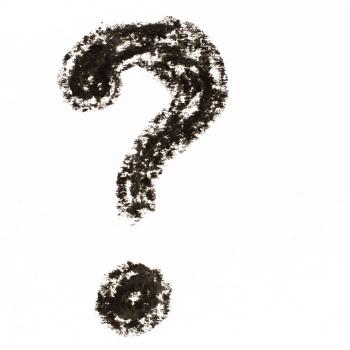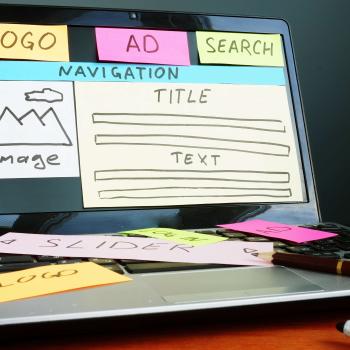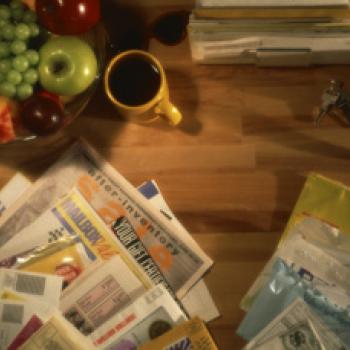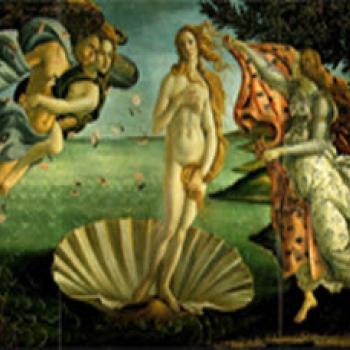This series of activities is designed to teach research strategies. Students use KWL charts to guide their inquiry and publish their results in a collaborative question and answer book.

Creating Question and Answer Books through Guided Research

Grades
|
Inquiry on the Internet: Evaluating Web Pages for a Class Collection
6 - 8
Lesson Plan
| Standard Lesson
Students use Internet search engines and Web analysis checklists to evaluate online resources then write annotations that explain how and why the resources will be valuable to the class.

Grades
|
Paying Attention to Technology: Writing Technology Autobiographies
9 - 12
Lesson Plan
| Standard Lesson
This lesson plan asks students to pay attention to the technologies they use. They graphically map their interactions with technology and compose narratives of their most significant interactions with technology.

Grades
|
Paying Attention to Technology: Exploring a Fictional Technology
9 - 12
Lesson Plan
| Standard Lesson
Students complete a short survey to establish their beliefs about technology. They compare their opinions to the ideas in a novel that depicts technology (such as 1984 or Fahrenheit 451).

Grades
|
A Genre Study of Letters With The Jolly Postman
3 - 5
Lesson Plan
| Standard Lesson
Students read The Jolly Postman, in which a postman delivers letters to storybook characters. They explore different types of mail and categorize letters from the book and their own mail.

Grades
|
Investigating Junk Mail: Negotiating Critical Literacy at the Mailbox
3 - 5
Lesson Plan
| Standard Lesson
Students increase their media literacy skills by critically examining and revising junk mail.

Grades
|
Examining Transcendentalism through Popular Culture
9 - 12
Lesson Plan
| Unit
Using excerpts from the works of Ralph Waldo Emerson and Henry David Thoreau, comics, and songs from different musical genres, students examine the characteristics of transcendentalism.
Grades
|
Authentic Persuasive Writing to Promote Summer Reading
9 - 12
Lesson Plan
| Standard Lesson
Turn summer reading lists from a teacher-centered requirement to a student-driven exploration by asking students to create brochures and flyers that suggest books to explore during the summer months.

Grades
|
Imagine That! Playing with Genre through Newspapers and Short Stories
6 - 8
Lesson Plan
| Standard Lesson
Students identify genre characteristics for short stories and newspaper articles then practice both genres by turning a short story into a news article and an article into a short story.

Grades
|
Acrostic Poems: All About Me and My Favorite Things
1 - 2
Lesson Plan
| Standard Lesson
Students create acrostic poems using their names and the names of things that are important to them.

Grades
|
Picture Books as Framing Texts: Research Paper Strategies for Struggling Writers
6 - 8
Lesson Plan
| Standard Lesson
Students use picture books as framing texts for research, freeing them from the language of encyclopedia sources and allowing them to focus their attention on the content of their papers.

Grades
|
An Exploration of Text Sets: Supporting All Readers
6 - 8
Lesson Plan
| Standard Lesson
Students create text sets on a high interest topic and use the texts to practice three strategies for reading for information.

Grades
|
Write Right Back: Recognizing Readers' Needs and Expectations for E-mail Replies
K - 2
Lesson Plan
| Standard Lesson
Students who know how to compose and send simple e-mail messages learn to use the reply function with audience needs and expectations in mind.

Grades
|
What's the Difference? Beginning Writers Compare E-mail with Letter Writing
K - 2
Lesson Plan
| Standard Lesson
Students compare e-mails to traditional letters, identifying style and intended audience for each. They then write both an e-mail and a letter about the same topic.

Grades
|
Authentic Writing Experiences and Math Problem-Solving Using Shopping Lists
K - 2
Lesson Plan
| Standard Lesson
Students use their emerging writing skills to write shopping lists. They work within a budget, use problem-solving skills to create lists, and buy their favorite treats at the class store.

Grades
|
Renaissance Humanism in Hamlet and The Birth of Venus
9 - 12
Lesson Plan
| Standard Lesson
After reading Shakespeare's Hamlet, students identify, analyze, and explain how elements in Botticelli's painting Birth of Venus and examples from the play illustrate the philosophy of Renaissance Humanism.

Grades
|
Book Report Alternative: Writing Resumes for Characters in Historical Fiction
3 - 5
Lesson Plan
| Standard Lesson
Students write resumes for historical fiction characters. They first explore help wanted ads to see what employers want, and then draft resumes for the characters they've chosen.

Grades
|
Reading and Analyzing Multigenre Texts
6 - 8
Lesson Plan
| Standard Lesson
Students develop a definition of multigenre texts by exploring multigenre picture books. They brainstorm what it takes to read these texts successfully and discuss strategies needed to comprehend the texts.

Grades
|
Unwinding A Circular Plot: Prediction Strategies in Reading and Writing
3 - 5
Lesson Plan
| Standard Lesson
Students use graphic organizers to explore plot in circular stories while focusing on prediction and sequencing. After exploring the features of circular plot stories, students write their own stories.

Grades
|
Choosing Clear and Varied Dialogue Tags: A Minilesson
3 - 5
Lesson Plan
| Minilesson
In this minilesson, students explore the use of dialogue tags such as "he said" or "she answered" in picture books and novels, discussing their purpose, form, and style.